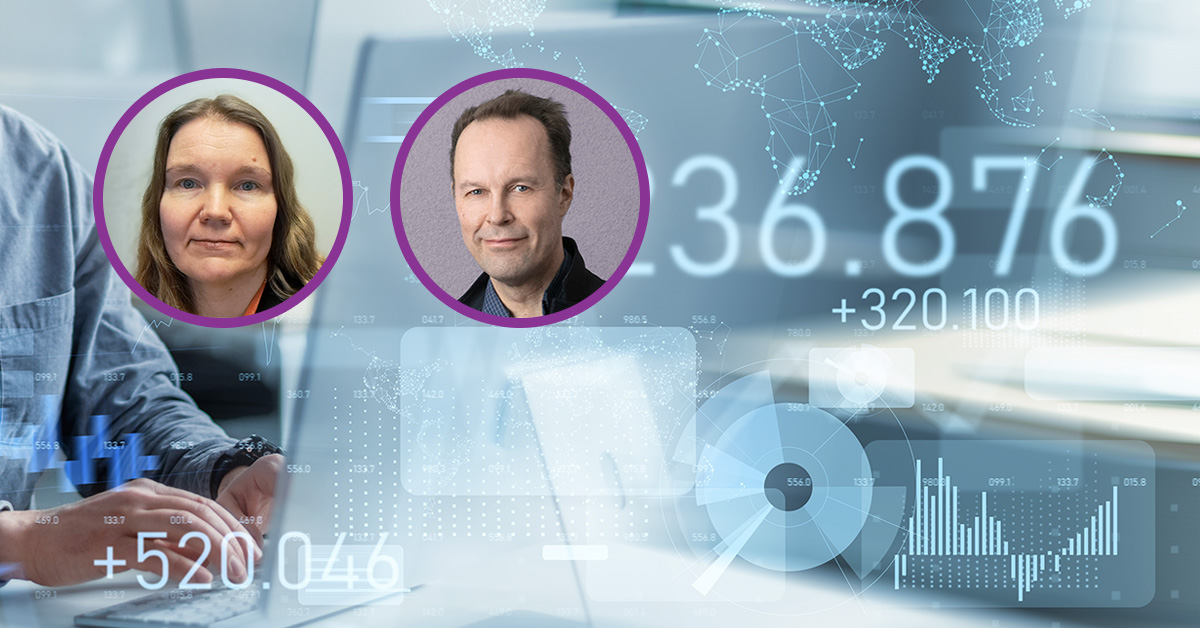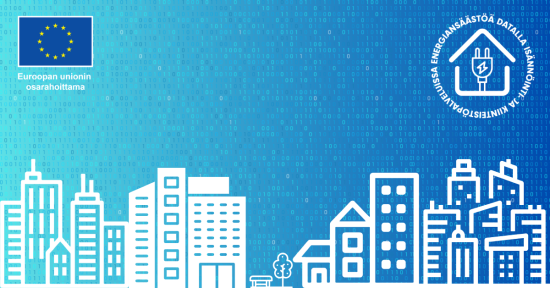The introduction of Peppol messages is now being planned in Finnish companies and public sector projects, as the State Treasury is beginning to use Peppol messages in its procurement. This will affect many operators in the sector in the future.
To ensure that your organisation is part of the benefits they bring, it is advisable to follow the development of digital product passports and of Peppol.
Digital product passports: leading the way to more transparent product information
Digital product passports are a way to bring together data on product sustainability, raw materials, other materials and safety. The European Commission intends to accelerate the digital and green transition, and product passports are a means of doing this. Product passports provide consumers with information transparently, promote responsible business, and accelerate the transition to a circular economy.
A digital product passport is a key means of sharing information throughout the product life cycle with all who need it. The product passport is key to the development of new business operations in product remanufacture, reuse, repair and the circular economy.
Kristiina Valtanen, researcher, VTT Technical Research Centre of Finland
In the coming years, EU regulation will determine data requirements for digital product information. Valtanen says that in the future, increasingly many products in the EU will need a digital product passport. The aim is to use resources more efficiently in order to meet climate-related targets.
Peppol can boost circular economy projects and the use of product passports
Circular economy projects, and digital product passports in particular, will benefit greatly from the use of existing systems and standards such as Peppol.
The data required for product passports should be transferred with existing order and invoice data in the Peppol system. One of the benefits of Peppol is that the same data can be transported throughout the financial management processes.
“Once entered into the digital financial management system, data moves automatically, speeding up processes and saving on human resources. Using Peppol messages in digital product passports would be sensible, as the Peppol network is already operational. Once recorded, the data substantially reduces the number of recording errors,” says development manager Timo Simell of the Finnish Information Society Development Centre (TIEKE).
Peppol and digital product passports promote sustainability
The Finnish operating environment is better prepared than those in many other countries for harnessing Peppol messaging for circular economy product passports. One reason for this is that the use of e-invoicing is more common in Finland than in many other countries, and so the threshold for adopting a new operating model is likely to be low.
“We’re in a good position compared to many other European countries, because Finland already has a functioning and widely used e-invoicing infrastructure. Around 90 per cent of all invoices sent in Finland are e-invoices,” Simell says.
The data in product passports could be adapted to be readable in eXtensible Business Reporting Language (XBRL) format, making it usable in financial statements as well. This would allow the procurement data to be entered in the accounts from the product passports, provided that the product passports are correct and up to date.
Digital product passports and Peppol would also facilitate sustainability-related reporting. Product passport data would be automatically fed into sustainability reports from Peppol. At present, this is mostly done manually.
Online invoicing supports the introduction of Peppol and digital product passports
The State Treasury is currently in the process of introducing Peppol. Digital product passports are also being piloted in a few sectors. The timetables are determined by EU requirements.
The battery, textile and steel industries are among the first to adopt digital product passports. The digital product passports for batteries is scheduled to come into operation in February 2027.
Product passports for textiles and steel are expected in June of that year. The EU Commission has also identified a number of other product groups for which product passports should be introduced in the future.
In order to move data smoothly between systems, it is essential for software companies, producers, suppliers and other actors to agree on the most appropriate method for transporting the data required by product passports.
“To agree standards and ground rules, development projects and collaboration are needed. This is where TIEKE offers support,” says Simell.
TIEKE networks promote the development of digital product passports
Digital financial management and related standards are the basis for digitalisation in many industries. The groundwork that has already been laid for digital financial management will enable newer developments.
TIEKE has been promoting digital financial management for 24 years, and could therefore help the different parties to establish common rules for product passports.
For example, the e-invoicing forum, for which TIEKE is the secretary, has a good understanding of digital product passports and Peppol. The forum consists of digital financial management actors such as banks, e-invoicing operators, software companies and virtually all major e-invoicing companies.
TIEKE also brings together circular economy developers, such as regional innovation entrepreneurs, research institutes and the education sector, as well as networks of digital economy experts to develop and pilot circular economy data mobility. There are currently projects underway in TIEKE in the circular economy field.
TIEKE provides assistance in solving practical problems in development projects, and in examining and developing solutions for data transfer.
“Getting in touch with TIEKE and getting assistance is as easy as sending us an email outlining your needs,” Simell says.
How to prepare for the product passport era
It’s time for organisations to get their processes in line with product passports. Monitoring developments in one’s own industry is important.
Keep up with the latest developments of customers, suppliers and other stakeholders – and more. Are there any upcoming requirements for product passports in your industry? Is a big industry influencer planning to switch to the Peppol messaging system, or has it switched to it already? This may mean that suppliers will also have to switch to Peppol.
Development manager Timo Simell, TIEKE
Valtanen advises companies to explore the possibilities and benefits of product passports, and to think about what they could mean from the perspective of the company’s own products.
“The next step is to think about what the company wants to achieve with the product passport, and then it’s time to move on to practical piloting. This is where Finnish technology actors can help. For example, TIEKE provides various means for developing the digital capacity of businesses, which is an essential part of deploying the product passport.”
Even large organisations do not make changes like this overnight; things must be done gradually. However, both Simell and Valtanen point out that the schedule can be tight on account of the EU, and a year is a short time when it comes to changing from one system to another.
Peppol and XBRL: tools for digital financial management
- The name Peppol comes from Pan-European Public Procurement On-Line. Peppol order forms are an electronic means of exchanging business documents between different parties efficiently and through automation. Peppol can be used for transporting digital product passports alongside the existing infrastructure at the same time with all other order-delivery data.
- XBRL is a reporting language for presenting financial information about companies. Among other things, it is used in the preparation of financial statements and tax returns.
Collaborate with TIEKE?
Want to help organizations in themes such as digital competence, data economy, real-time economy, or sustainability? Partner with us!
TIEKE Finnish Information Society Development Centre is a non-profit organisation founded in 1981 aiming to develop, improve and support a thriving information society and all its digital endeavours.
We help organizations in various ways:
- Projects and initiatives
- Networking and ecosystem work
- Surveys and studies
- Expert services and advice
- Webinars, online trainings and coaching programmes
- Materials and guides
We have a track record working in various project roles: coordination, partner, expert, comms and more.
We run around 15 projects per year and are familiar with instruments such as CERV, Erasmus, ERDF and ESF.
We work with wide array of target groups such as SMEs, large companies, educational organizations, public sector and associations.
Don’t hesitate to get in touch to discuss collaboration opportunities with us!










